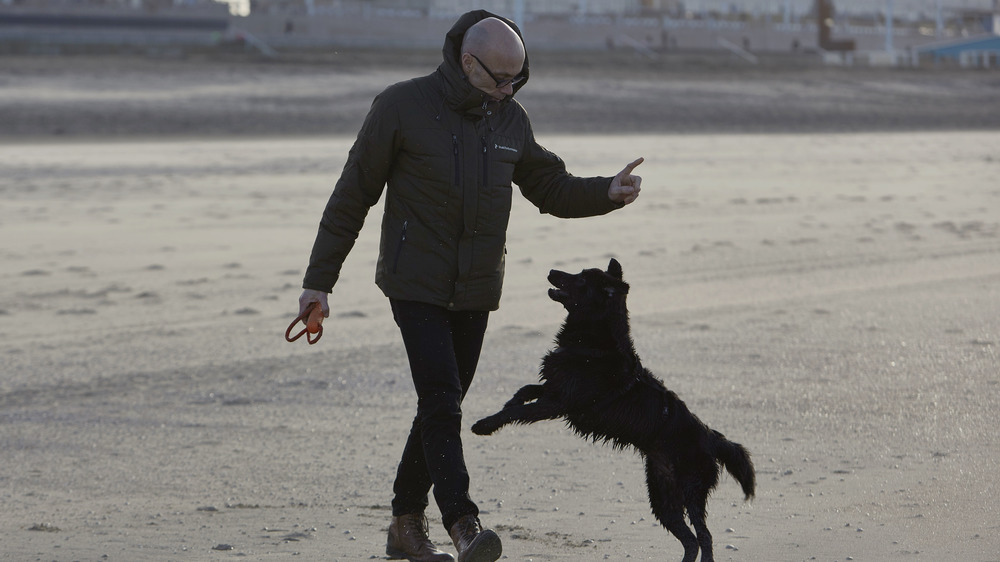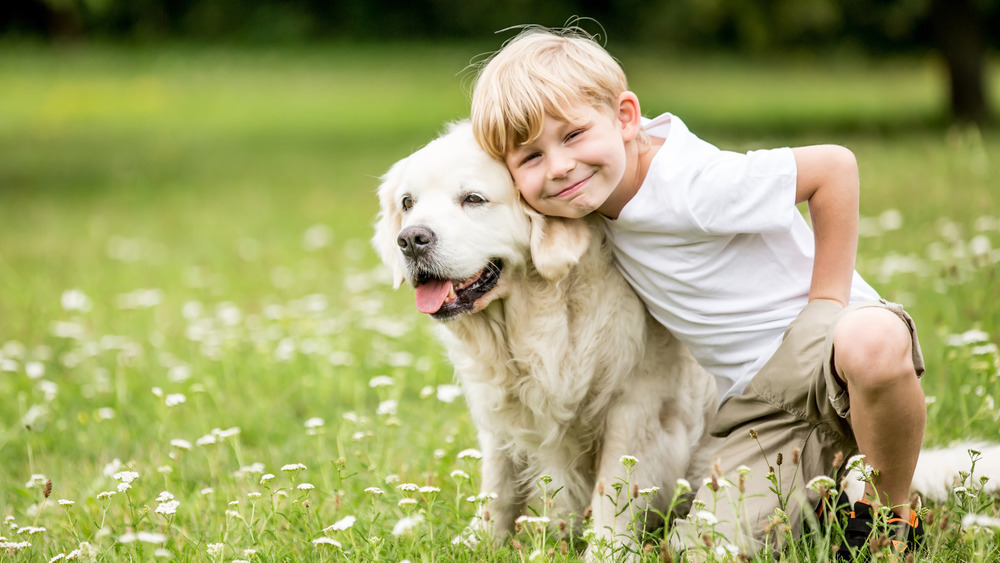The Science Behind The Bond Between Dogs And Humans
It's no secret that dogs are man's best friend. The bond between dog and human has been forged for centuries, but scientists believe there's more to the man and canine friendship than we think.
For many, it's generally agreed that humans have bred dogs to do what we want them to. Scientists increasingly see that it's more than just a pure evolutionary process, however; dogs just love their humans. That love is certainly different from our concept of feelings, and it can be argued that theirs might be even more complicated. All this means is that our dogs can teach we humans to understand them.
Smithsonian Magazine wrote that scientists have been conducting several experiments to test out theories on the dog-human relationship and psychology. What they found is that dogs can parse human behavior. Researchers at Yale University believe dogs could be the closest animals to humans in terms of social behaviors. Dogs they tested in their Canine Cognition Lab showed an ability to determine a human's intent when issuing orders.
Researchers wanted to find out why dogs were trying so hard to understand humans. It seems it's because they're hardwired to form emotional bonds with anything they come across, reported The New York Times. They can emotionally attach to sheep, goats, and even some unusual animals like penguins, if the dogs are raised with them. Scientists call this hypersocial behavior, and it may stem from a dog's genetic evolution.
They've evolved to love us
While further study of dogs' DNA is needed, researchers are hopeful they can learn more about how dogs evolved to be friendly and affectionate. After all, wolves and dogs are close relatives, but it is not easy to train a wolf to socialize. (Although, if you've ever tried to retrain an older dog, you know it's not that easy, either.)
According to Smithsonian, some researchers think dogs take advantage of something called the oxytocin loop. Oxytocin, of course, is a hormone that plays a part in bonding and social behaviors. It's sometimes called the love hormone because it makes humans feel pleasure from empathy or other social interactions.
Scientists studying dog behavior explained that dogs follow the same behavior patterns as human toddlers. Toddlers are hard to take care of, but adult humans take care of them because it makes the adults feel great. All the baby has to do is look at the adult, and the adult and baby's oxytocin levels shoot up. Oxytocin, it turns out, increases the need for a person to want to care for another. Dogs are no different. All they have to do is look at you and you fall in love with them all over again, no matter how many shoes they've chewed up.
Puppies may have developed the ability to show more of their sclera, or the whites of the eyes, which humans associate with friendliness. Humans do the same thing. Dogs have so evolved to love humans that even their eyebrows want to show they're friendly.
Your dog really loves you. Science proves it
Studying dog behavior and cognition is important far beyond just understanding how to better treat your pit bull or dachshund. Researchers hope learning more about how dogs interact with the world helps them figure out how humans interact with the world, too. After all, if dogs have far more in common with humans in terms of social behavior, it makes sense they can shed light on some human mysteries of behavior, too.
Dogs can teach us how humans become affectionate, form social bonds, and protect others. As dogs evolved to please humans, they became the perfect subjects to see how the human mind works. Time pointed out that humans have become attached to dogs in a way that's rare with other working animals. We've had a lot more to do with their evolution and shaped them in our image, so they've begun to share traits with us.
Scientists are trying to understand how much a dog's love can tell us about not just the dog and human bond but also about the human mind. Their love, studies so far have shown, is both a function of biology, hormones, and maybe even real feelings.
The next time your dog misbehaves and just looks at you with those puppy dog eyes, just know you were responsible for the dog loving you. Go ahead. Give them a treat. What a good dog.


